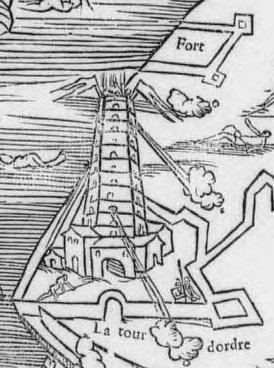Boulogne-sur-Mer
Boulogne-sur-Mer is a coastal city in the Pas-de-Calais department in northern France. It is located on the Côte d'Opale, a region known for its beautiful coastline and natural landscapes. Boulogne-sur-Mer is an important port city and has a rich history dating back to Roman times.
History[edit | edit source]
Boulogne-sur-Mer was originally known as Gesoriacum during the Roman Empire. It served as a major port for the Romans and was a key point of departure for their expeditions to Britain. The city was later renamed Bononia.
During the Middle Ages, Boulogne-sur-Mer became a significant center of commerce and trade. The city was fortified with walls and a castle, which still stand today as the Château de Boulogne-sur-Mer. The city also played a crucial role during the Napoleonic Wars as a staging ground for Napoleon Bonaparte's planned invasion of Britain.
Geography[edit | edit source]
Boulogne-sur-Mer is situated on the English Channel, directly across from Dover in the United Kingdom. The city is divided into two main parts: the upper town (Haute Ville) and the lower town (Basse Ville). The upper town is the historic center, featuring the Basilica of Notre-Dame de Boulogne and the Château de Boulogne-sur-Mer. The lower town is the modern commercial area and port.
Economy[edit | edit source]
The economy of Boulogne-sur-Mer is heavily reliant on its port, which is one of the largest fishing ports in France. The city is also known for its seafood processing industry. Tourism is another important sector, with visitors attracted to the city's historical sites, beaches, and the Nausicaä Centre National de la Mer, a large public aquarium.
Culture[edit | edit source]
Boulogne-sur-Mer has a vibrant cultural scene, with numerous festivals and events held throughout the year. The city is home to several museums, including the Château-Musée de Boulogne-sur-Mer, which houses a collection of art and artifacts from various periods.
Transportation[edit | edit source]
Boulogne-sur-Mer is well-connected by road, rail, and sea. The city is served by the A16 motorway, which links it to Paris and other major cities. The Gare de Boulogne-Ville is the main railway station, offering connections to Calais, Lille, and Paris. The port provides ferry services to the United Kingdom and other destinations.
Education[edit | edit source]
The city has several educational institutions, including primary and secondary schools, as well as higher education facilities. The Université du Littoral Côte d'Opale has a campus in Boulogne-sur-Mer, offering a range of undergraduate and postgraduate programs.
Notable People[edit | edit source]
- Charles-Augustin de Coulomb, a physicist known for his work on electrostatics, was born in Boulogne-sur-Mer.
- Auguste Mariette, an archaeologist and Egyptologist, was also a native of the city.
See Also[edit | edit source]
- Pas-de-Calais
- Côte d'Opale
- Nausicaä Centre National de la Mer
- Château de Boulogne-sur-Mer
- Basilica of Notre-Dame de Boulogne
References[edit | edit source]
External Links[edit | edit source]
Search WikiMD
Ad.Tired of being Overweight? Try W8MD's physician weight loss program.
Semaglutide (Ozempic / Wegovy and Tirzepatide (Mounjaro / Zepbound) available.
Advertise on WikiMD
|
WikiMD's Wellness Encyclopedia |
| Let Food Be Thy Medicine Medicine Thy Food - Hippocrates |
Translate this page: - East Asian
中文,
日本,
한국어,
South Asian
हिन्दी,
தமிழ்,
తెలుగు,
Urdu,
ಕನ್ನಡ,
Southeast Asian
Indonesian,
Vietnamese,
Thai,
မြန်မာဘာသာ,
বাংলা
European
español,
Deutsch,
français,
Greek,
português do Brasil,
polski,
română,
русский,
Nederlands,
norsk,
svenska,
suomi,
Italian
Middle Eastern & African
عربى,
Turkish,
Persian,
Hebrew,
Afrikaans,
isiZulu,
Kiswahili,
Other
Bulgarian,
Hungarian,
Czech,
Swedish,
മലയാളം,
मराठी,
ਪੰਜਾਬੀ,
ગુજરાતી,
Portuguese,
Ukrainian
Medical Disclaimer: WikiMD is not a substitute for professional medical advice. The information on WikiMD is provided as an information resource only, may be incorrect, outdated or misleading, and is not to be used or relied on for any diagnostic or treatment purposes. Please consult your health care provider before making any healthcare decisions or for guidance about a specific medical condition. WikiMD expressly disclaims responsibility, and shall have no liability, for any damages, loss, injury, or liability whatsoever suffered as a result of your reliance on the information contained in this site. By visiting this site you agree to the foregoing terms and conditions, which may from time to time be changed or supplemented by WikiMD. If you do not agree to the foregoing terms and conditions, you should not enter or use this site. See full disclaimer.
Credits:Most images are courtesy of Wikimedia commons, and templates, categories Wikipedia, licensed under CC BY SA or similar.
Contributors: Prab R. Tumpati, MD




